Japan sends biggest warship to protect US supply vessel
- Published
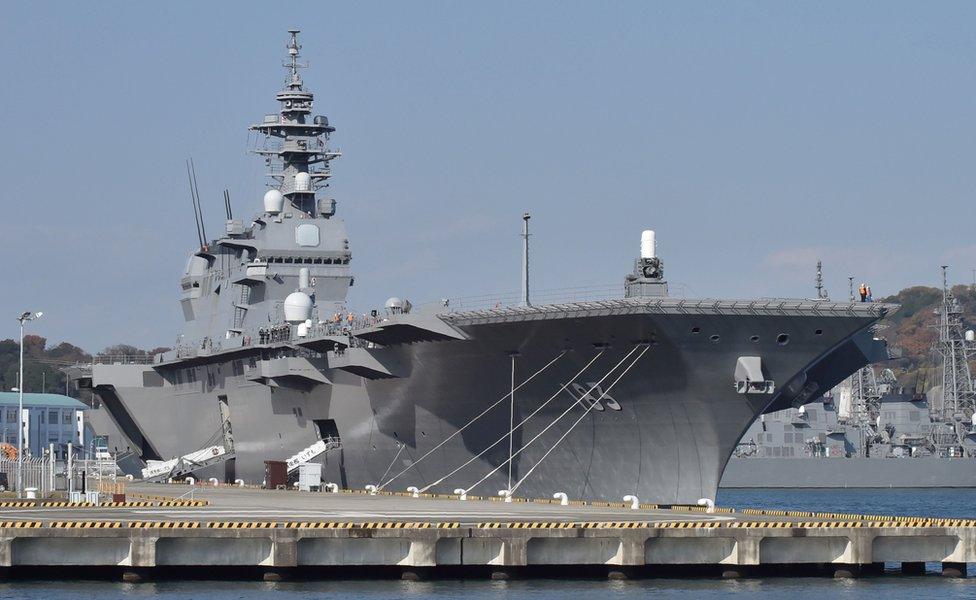
The Izumo, seen here in a file picture, is Japan's biggest warship
Japan has dispatched its biggest warship, in the first such operation since it passed controversial laws expanding the role of its military.
The helicopter carrier Izumo is escorting a US supply vessel within Japanese waters.
The US ship is heading to refuel the naval fleet in the region, including the Carl Vinson aircraft carrier group.
North Korea has threatened to sink the Carl Vinson and a US submarine, amid rising tensions in the region.
It also carried out a failed missile test, despite repeated warnings from the US and others to stop its nuclear and missile activity.
The 249m-long Izumo can carry up to nine helicopters, and resembles US amphibious assault carriers, reported the Japan Times., external
Kyodo news agency said it was leaving its base in Yokosuka, south of Tokyo, to join the US supply ship and accompany it to waters off Shikoku in western Japan.
Japan's post-World War Two constitution bars its military from using force to resolve conflicts except in cases of self-defence.

Analysis by Rupert Wingfield-Hayes, BBC News, Tokyo
Pacifist Japan has one of the most powerful militaries in the world, with a navy bigger and more modern than the British Royal Navy.
Tokyo could have sent a much smaller destroyer to escort the US Navy's Richard E Byrd. But sending the 27,000-tonne Izumo was perhaps too good an opportunity for Prime Minister Shinzo Abe and his Defence Minister Tomomi Inada to waste.
Both Mr Abe and Ms Inada are right-wing nationalists who want to scrap Japan's pacifist constitution. That is all but impossible. So instead, last year, Mr Abe succeeded in pushing a new security law through parliament.
In effect the new law ignores the constitution, and says Japan's forces can come to the defence of its allies. Mr Abe knows there is widespread public opposition to "remilitarising" Japan. So in that context, the growing threat from North Korea is useful to him.

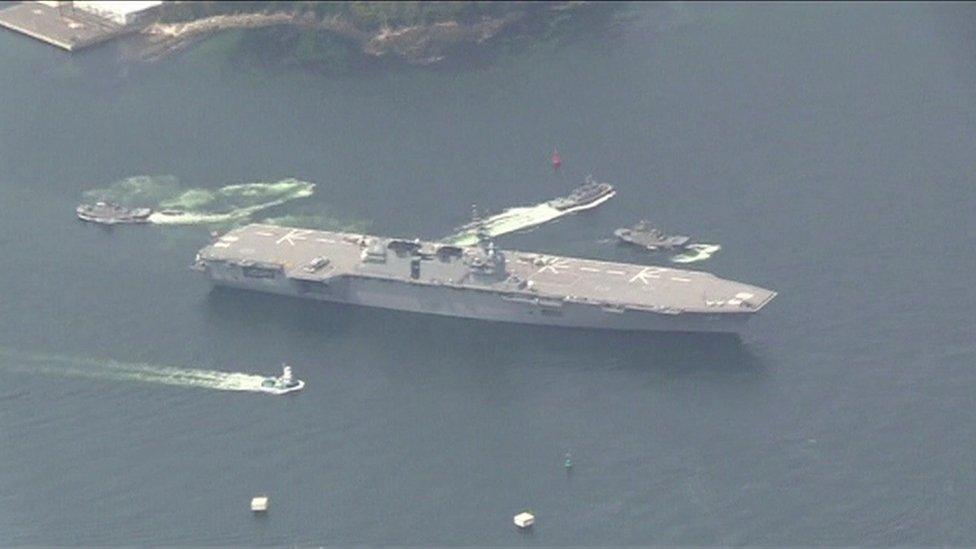
Japanese television showed the Izumo leaving the port of Yokosuka
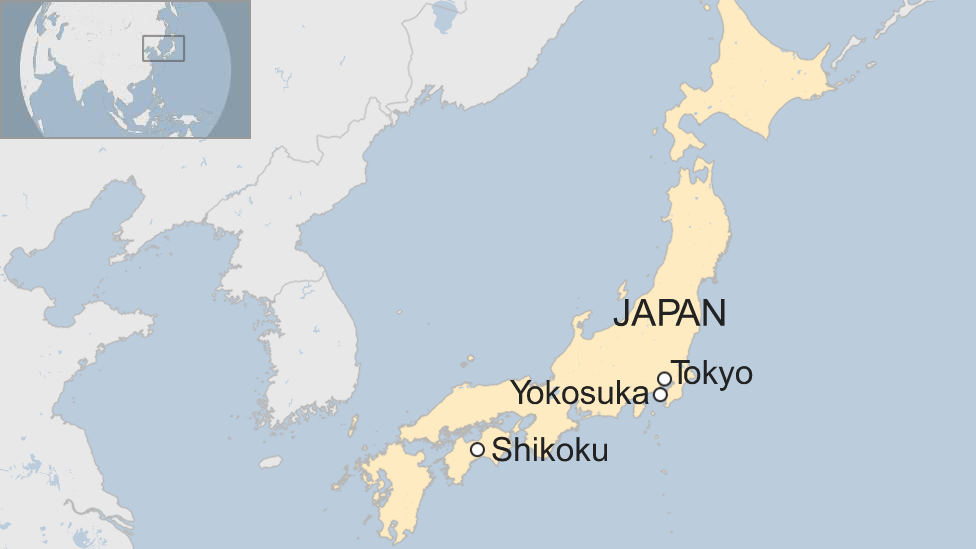

When is military action allowed?
Japan can protect the weapons and equipment of its allies' armed forces who are defending Japan
It can provide logistical support to allies involved in situations with "important influence" on Japan's security - for example it could support South Korea if the North invaded, but may stop short of sending troops as this may be unconstitutional
Japan can shoot down a North Korean missile heading for the US
Military action such as minesweeping to keep shipping lanes secure, even in an active conflict zone, may be allowed if the restriction on shipping threatened Japan's survival

The Izumo's deployment follows recent joint exercises conducted by Japan and the US, and other naval developments.
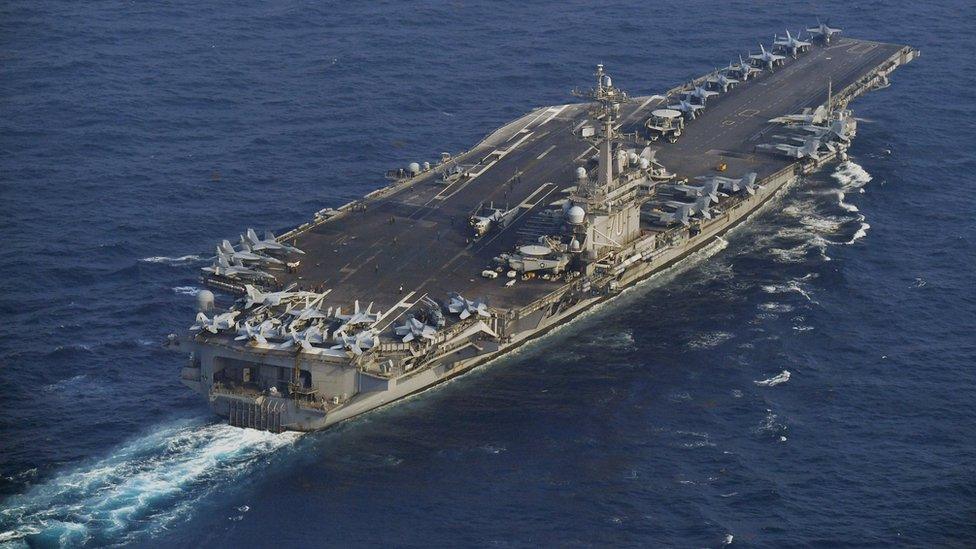
The US aircraft carrier Carl Vinson was seen off southern Japan on Saturday
A French amphibious assault ship arrived in south-west Japan on Saturday for an exercise also involving Japanese, US and British naval forces. South Korea has been conducting joint exercises with the US as well.
China last week launched its second aircraft carrier.
- Published29 April 2017
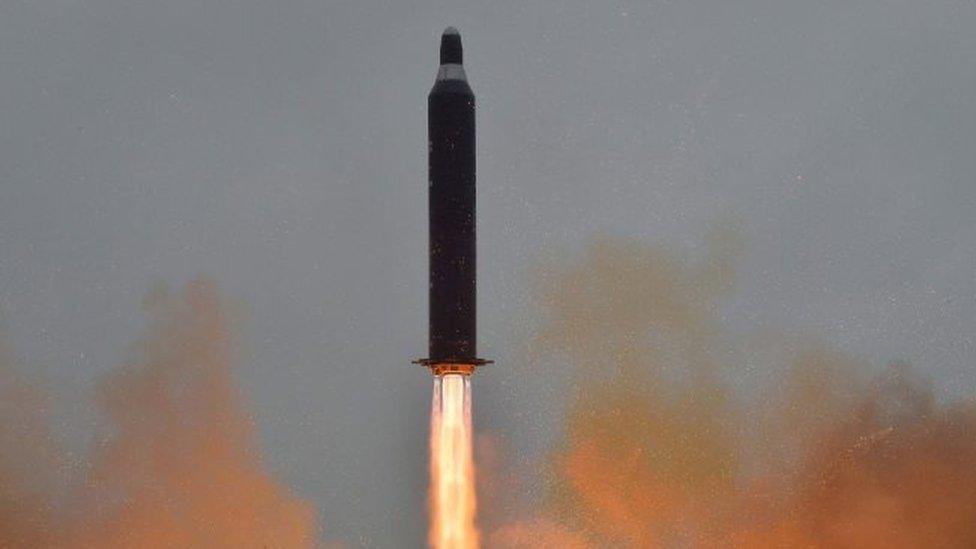
- Published27 April 2017
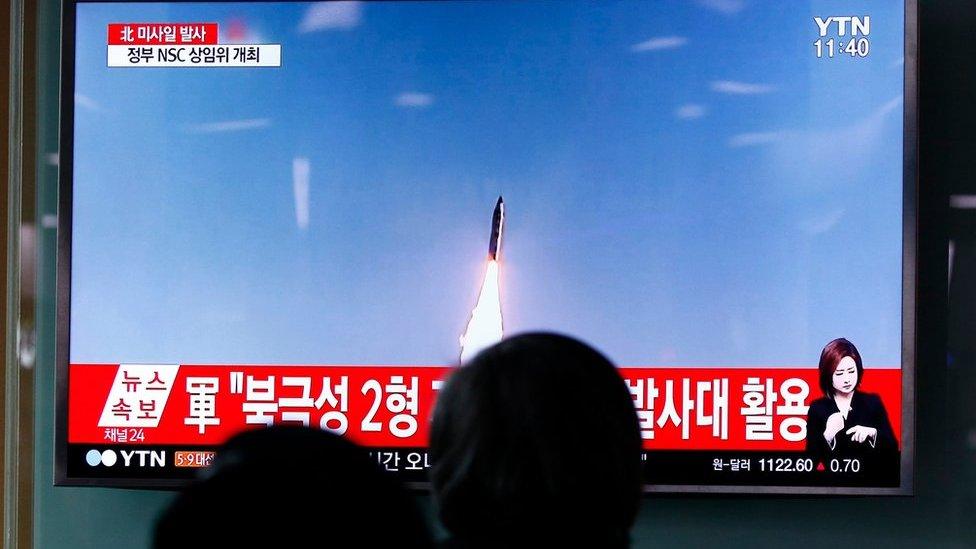
- Published4 July 2017
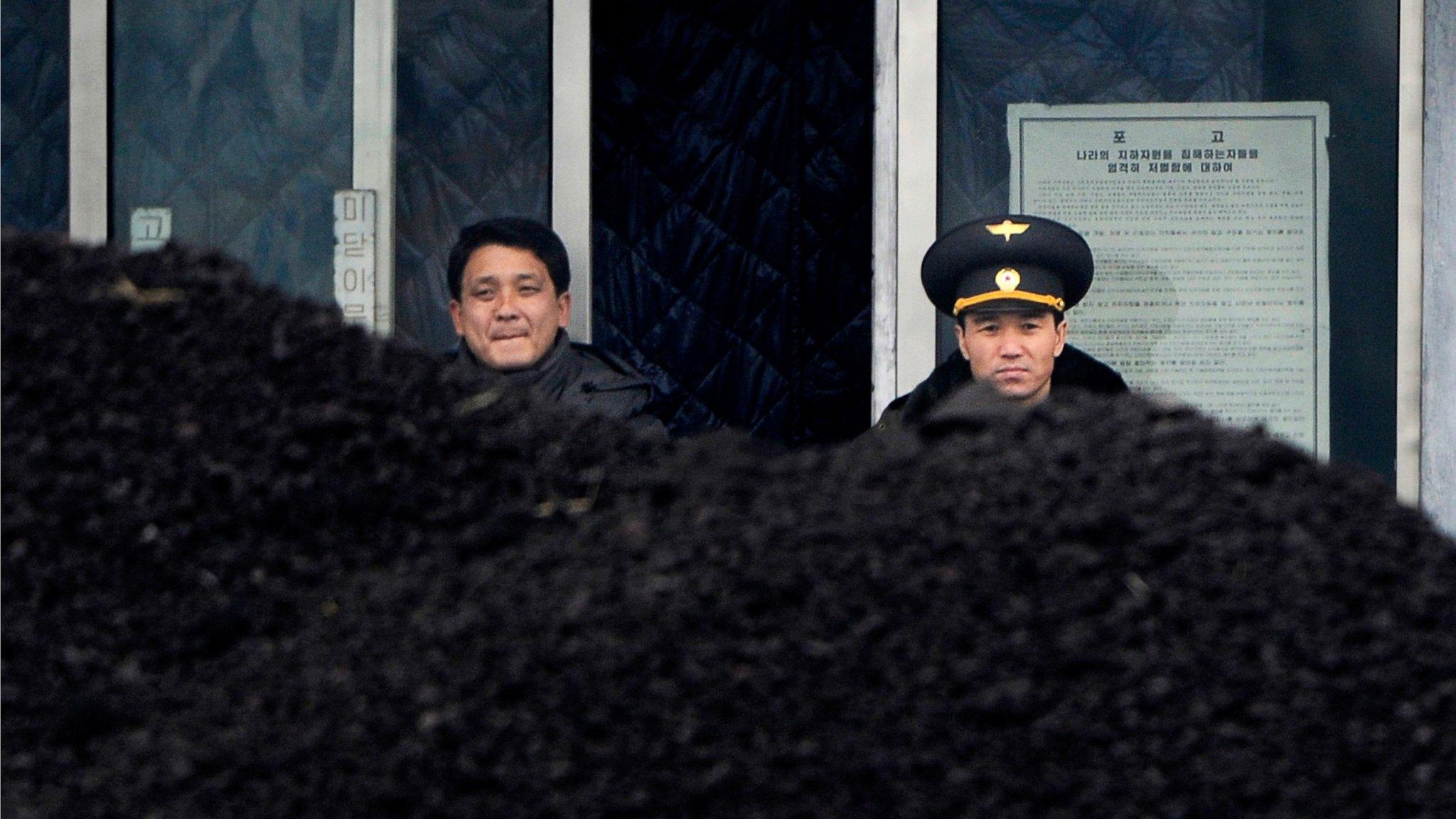
- Published16 July 2015
